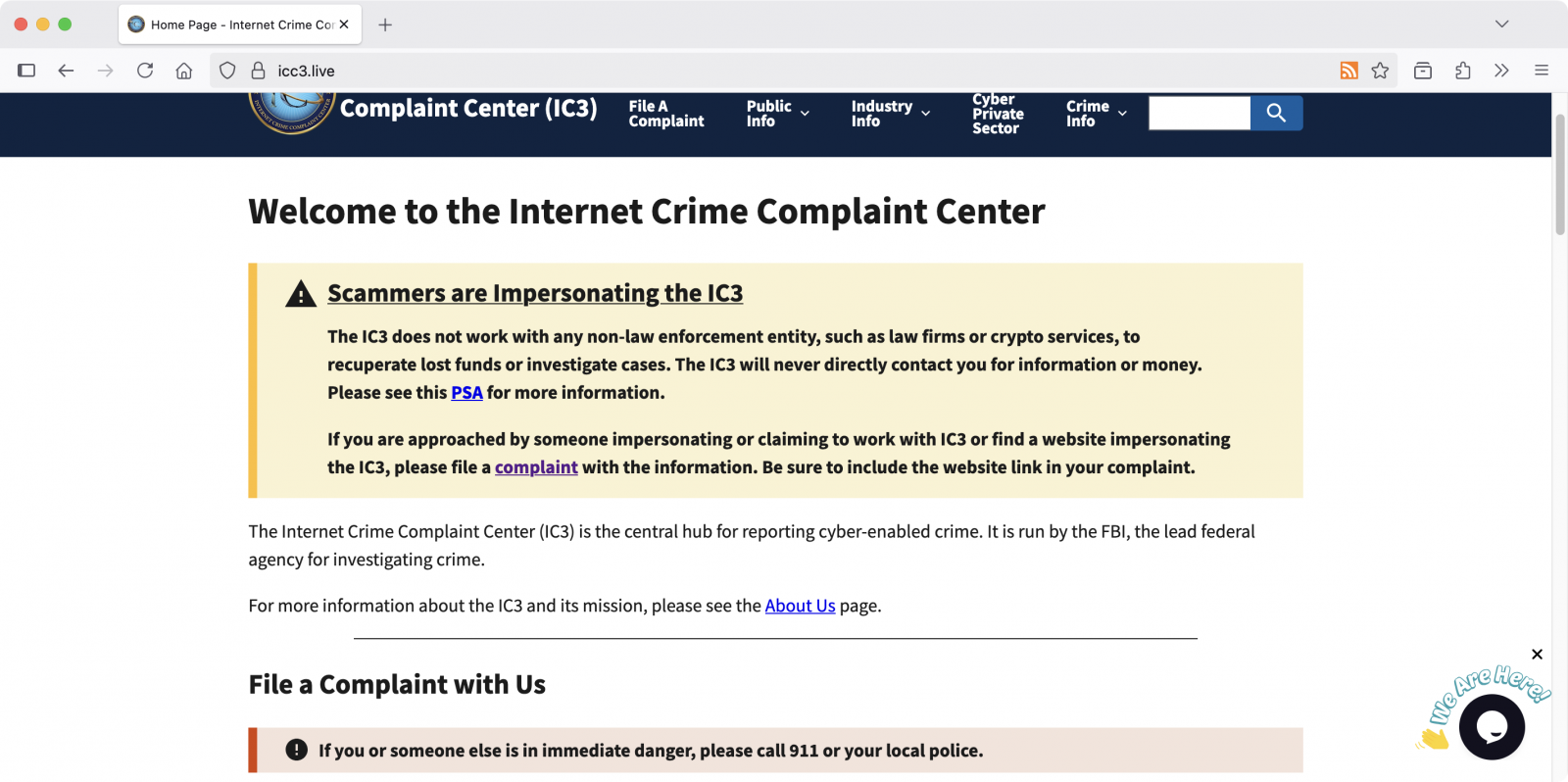The FBI warned that cybercriminals are impersonating its Internet Crime Complaint Center (IC3) website in what the law enforcement agency described as “possible malicious activity.”
Although the agency did not share specific examples or confirm particular attacks, it explained that spoofed websites often serve as tools for financial scams or for stealing visitors’ personal information.
According to the FBI, “Threat actors create spoofed websites often by slightly altering characteristics of legitimate website domains, with the purpose of gathering personally identifiable information entered by a user into the site, including name, home address, phone number, email address, and banking information.”
The agency also emphasized, “For example, spoofed website domains may feature alternate spellings of words or use an alternative top-level domain to impersonate a legitimate website.”
Even though the FBI did not reveal which domains imitate the IC3 site, BleepingComputer identified several suspicious examples, including icc3[.]live, practicinglawyer[.]net, and ic3a[.]com.
Ironically, the first fraudulent site even displays a warning message copied from the legitimate IC3 page, which cautions visitors about scammers posing as FBI IC3 employees offering to “help” recover lost funds.
IC3 website spoofed by scammers (BleepingComputer)
The latest warning connects to an April public service announcement. That alert followed more than 100 reports filed between December 2023 and February 2025 about fraudsters using this impersonation tactic.
To protect against these scams, the FBI advises typing www.ic3.gov directly into the browser’s address bar instead of relying on search engines. The agency also urges people to avoid clicking on sponsored search results since scammers frequently buy ads to redirect traffic to their phishing pages.
Furthermore, the FBI instructs the public to never share personal information with strangers online or over the phone, and never send money, cryptocurrency, gift cards, or other financial assets.
The agency clarified that IC3 and FBI employees never contact victims directly through phone calls, emails, social media, mobile apps, or public forums. They also never ask for payment to recover stolen funds or recommend companies that charge victims for fund recovery services.
Cryptocurrency Scams
In a related case, the Spanish National Police arrested six suspects in April. These individuals contacted cryptocurrency scam victims while pretending to be Europol agents or U.K. lawyers. They demanded local tax payments as a condition to recover lost investments.
Two years earlier, the FBI also cautioned the public about scammers who impersonated government or law enforcement officials. At that time, the fraudsters used fake credentials and spoofed phone numbers to extort money or steal sensitive personal information from their targets.
Source: BleepingComputer, Sergiu Gatlan
Read more at Impreza News


























